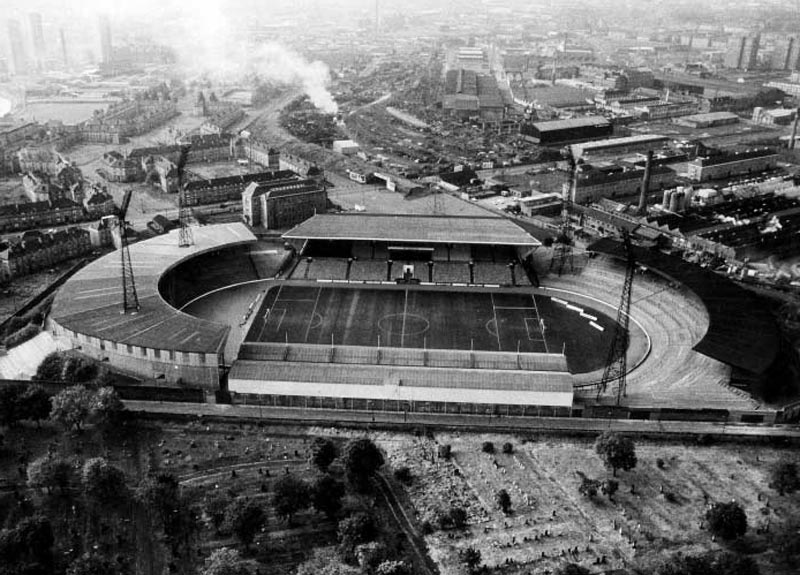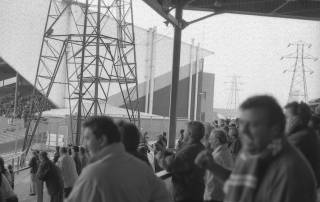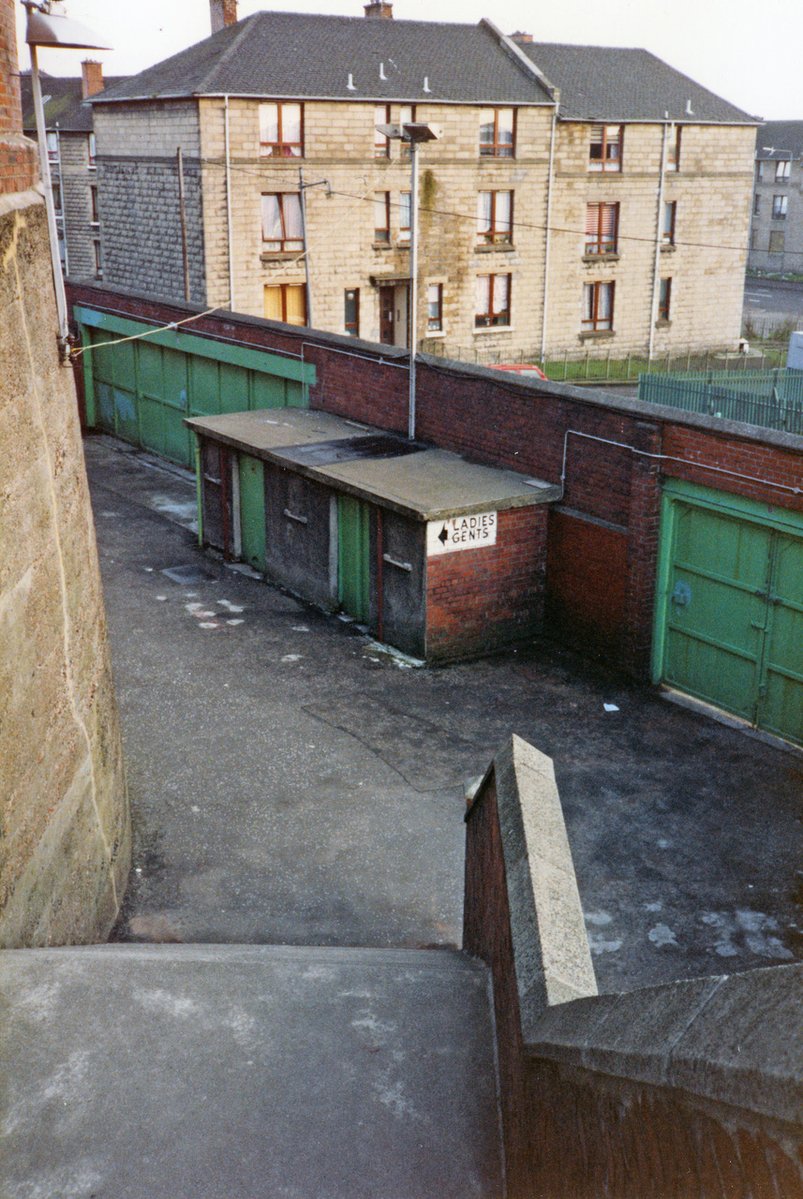Details
Reference: West Terracing and East Terracing behind the goals at Celtic Park
aka: (1) West Terracing (‘The Celtic End‘) is now the Jock Stein stand; (2) East Terracing (‘The Rangers End‘) is now the Lisbon Lions stand
Stands: Terracing behind the goals in the old stadium prior to 1994 stadium renovation
Renovation: 1994
The Celtic End & The Rangers End
Back in the old days the ground was covered in old terracing with one stand section. We all know about the Jungle terracing with old fans giving it laldy about how great it was there. However, on either side were the old terracing ends which the supporters dubbed as ‘The Celtic End‘ (West Terracing, RHS of picture) and ‘The Rangers End‘ (East Terracing, LHS of the picture).
Note, some claim that ‘The Celtic End’ was known by some as ‘The Railway End‘, although it wasn’t actually the closer of the two ends to the old Celtic Park/Parkhead Railway station (link) but this does not appear to be a commonly used term. Some have even referred to ‘The Rangers End’ as being called ‘The Lanarkshire End‘ as the supporters’ buses from Lanarkshire used to park along the long roads nearest to this end, so a high proportion of the Celtic fans in this end came from there.
‘The Celtic End’ is what is now known as the Jock Stein stand and ‘The Rangers End’ is what is now the Lisbon Lions stand, both completely unrecognisable from their former formations. In truth the old stands were assembled piecemeal with little care or thought, and they looked a mess from an aesthetic point of view. Unmatching and irregular sized, little planning and foresight had been put into their development by the Old Celtic Boards who never really hid their haughty view of themselves above the general support, and the archaic conditions of the terracing ends compared to the modern Main Stand showed this divide.
Incredibly, the stadium and terracing were still in far better condition (despite the lack of care) than at the grounds of fellow peers throughout football in the UK, illustrating just how little club owners across the board treated their own fans. Possibly, it’s a good reason why Celtic fans still have a greater fondness for terracing compared to fans of various other large clubs.
Anyhow the fans still made much of the terraces, and all the fun in the old days wasn’t just in the jungle terracing but especially during major matches the ends of the ground were just as rocking. The top down viewpoint gave a very different view for the supporters, and the terracing (so standing room only) meant it was raucous many a time when fully packed.
Believe it or not, but actually up to around sometime in the 70s, it was the Celtic End that many say was where the hardened young supporters went to create a raucous atmosphere and was the centre for match day activity, the Jungle being for older fans.
The main reason for the monikers given was due to the old allocations for matches against Rangers. Nowadays, opposition fans are given an allocation of just the corner area of the ground beside the RHS of the main stand. Up to the early 90s, the whole end was given over to Rangers fans for the derby games. (Hence the opposing end names). That meant one very explosive atmosphere as the home support faced a sizeable away support in full voice. It’s only really in cup finals any longer that you see such splits anywhere near as close any more at a match.
One thing that could be frustrating for those in the ends was that Parkhead (sorry, Celtic Park!) had a large track around it. For those at the back of the stands, it could mean difficulty seeing the other end of the pitch, practically only half a game due to the distance away. In fairness, the End terracings were quite steep which helped matters for getting a fair view of the whole pitch (other grounds’ ends were less steep which accentuated the problems of viewing from the ground ends (e.g. Hampden)).
One benefit though of the track area behind the goals was that it allowed disabled supporters to park their disabled people’s blue motors there and watch the matches from behind the goals. A cracking vantage point.
If there was one big headache in the ends it was the giant floodlights. Great markers to find the stadium to get there, but as they were buried and built into the ends if you ended up in a place behind one of the floodlight stanchions you’d miss much of the game. For those at packed out games this was a nightmare. It’s definitely one of the progressions of the modern game that fans don’t have to worry about this problem. You will get some with crazy nostalgic tales of nutcases climbing the floodlights to dangerously watch the games from up on their rails! Actually, it was also the stanchions that held up the roofing above the terracing that were a problem, and these sadly are still a headache in some older grounds around the UK.
In any case, the old terracing ends are long gone (in their old format) and are a distant memory, the government ordered Taylor Report enforced mandatory all seater stadia in the UK and terracings were dealt the death-knell at Celtic Park in 1993-94, although regular moves had been made to try to bring back terracing to some extent until finally their reintroduction in 2016. Elder supporters can still commonly refer to the ends by their old names, as against the younger fans who reference them by their new monikers, but that is in decline.
Maybe the next name change will be to name the ends after the new fan groups, such as the Green Brigade who corner one part of the ground, but to the older more nostalgic supporters they will always be the Celtic and Rangers Ends.
Links
KDS
Pictures
The Celtic End
Views from the Celtic End
View from Celtic End

The end for the Celtic end
Celtic End (corner beside Main Stand)
The Rangers End
Rangers End from 1960s
Celtic Park view from old Rangers End (from away supporters section)
The Rangers End













![[Untitled] [Untitled]](https://wikifoundryimages.s3.amazonaws.com/e638eac021abb745643de49fd6f6b111)
























